In 2017, Guerilla Games dropped Horizon: Zero Dawn in our laps and we lapped it up in turn. In a year which gave us showstoppers such as Resident Evil 7: Biohazard, Super Mario Odyssey and Wolfenstein II: The New Colossus, Horizon nevertheless managed to stand out with it’s excellent gameplay, remarkable visuals, intriguing storytelling and lovable protagonist Aloy.
And with the sequel set to come out in a few short weeks, it’s an excellent time to look back at Aloy and what I consider one of the best, if not often spoken of, parts of her story: overcoming contact with an abusive community.
Beware that the following content contains heavy spoilers, so if you haven’t finished your gameplay, go and do so! And if what I’ve said so far sounds interesting, you can check out the game through PlayStation, or if you’re a PC gamer, it is available through Steam and Guerilla Games.
Welcome to the New Age
Some of the best games, in my experience, are the ones that teach you lessons without you realizing it. Horizon does that extremely well with Aloy, teaching the audience through her.
Now, from first glance, Aloy doesn’t seem to be one to really need the lesson. Aloy is cunning, resourceful, hard-working, and most of all, independent. It’s a facet of her being that she takes pride in, and it’s understandable why.
Horizon has several factions in the game, all with their own rich history and traditions. There’s the superstitious and matriarchal Nora, the imperialistic Carja, the crafty engineering Oseram, and the stubborn, fierce Banuk. And Aloy, barely on the cusp of adulthood, is smart and skilled enough to face them all.
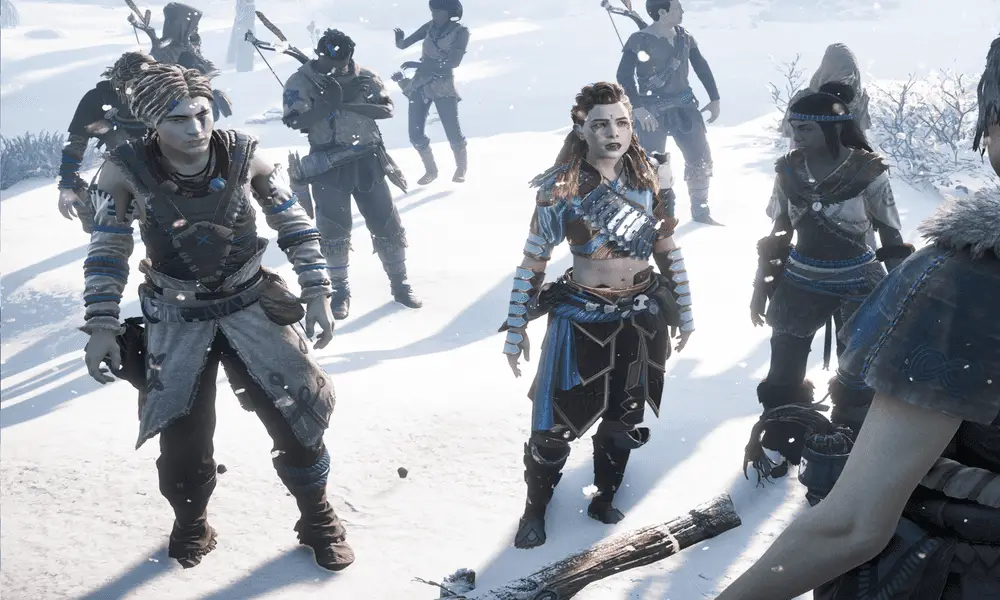
Aloy is technically part of the Nora, though she was outcast from her first breath, and this is the mystery that drives her to seek her origins and the reasons why she was isolated from the community. It also drives a enormous wedge between Aloy and any sense of loyalty or respect she would have for the tribe.
Having been alone save for her often stoic caretaker and teacher Rost, Aloy has little love for the tribe. She sees them as rigid, almost backwards at times. Though she doesn’t go out of her way to be cruel to them, their cruelty to her, however indirect, scars her for years.
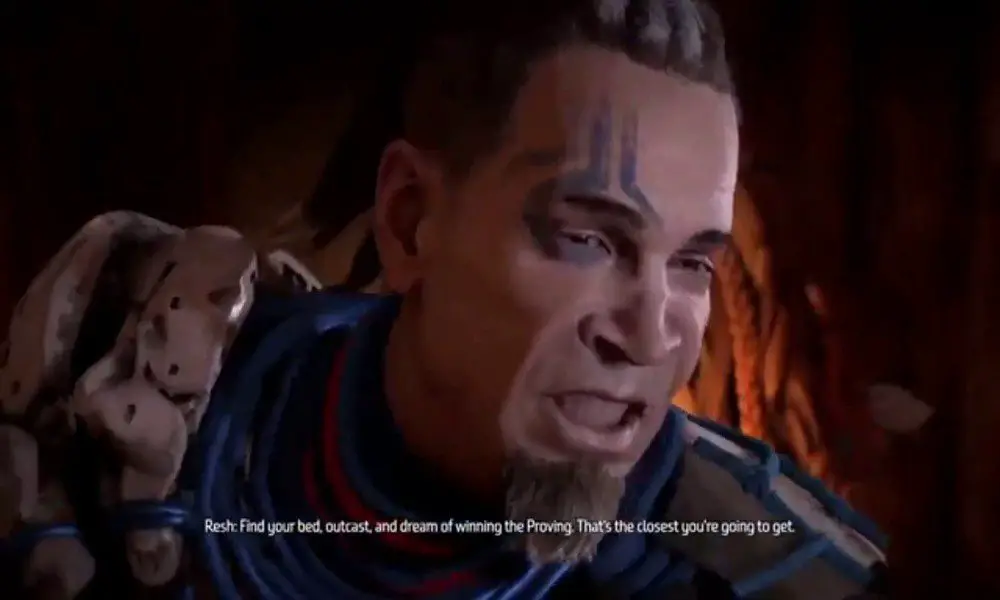
And yet her guardian goes out of his way to instill, if not loyalty to the Nora, a sense of compassion and understanding for the people within it.
“You said I wouldn’t need the tribe,” Aloy says plaintively, understanding that this day before the ceremonial Proving is her first step into destiny. She’s confused and resentful and neither she, nor the audience, quite understand why they are being encouraged to seemingly shackle themselves to this distant, poisonous entity that we’ve come to see as the Nora.
“But I never said they wouldn’t need you,” Rost responds, and it’s this message that defines her despite her ire. Because one of Horizon‘s greatest strengths is taking these factions and turning them into people.
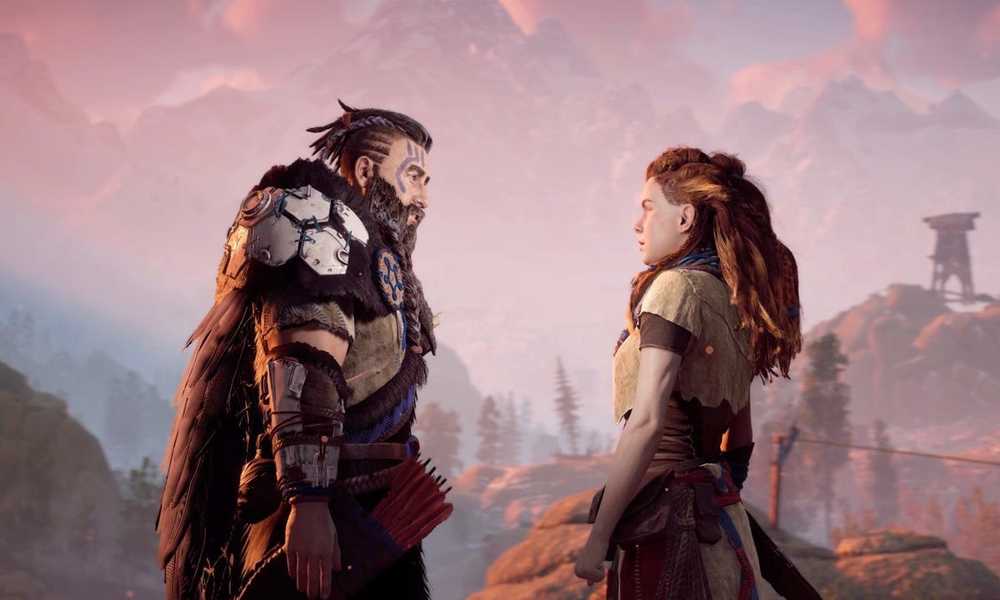
Not One of Us
Early in the game Aloy experiences the Nora as a young outcast several times and the experiences range drastically. A teacher ushers her charges away from her. A young hunter, wounded and surrounded, is saved by her and remains grateful and open to her for years. One of those young charges hurls a rock at her, wounds her, follows her lead as a teen in a fraught moment of mortal danger and is ruthlessly cut down. A young woman meets her and appreciates as her as a fellow competitor and potential friends and is too tragically murdered. The tribe as whole is cold, neutral, welcoming, mourning, and celebratory. And this is all within the first few hours.
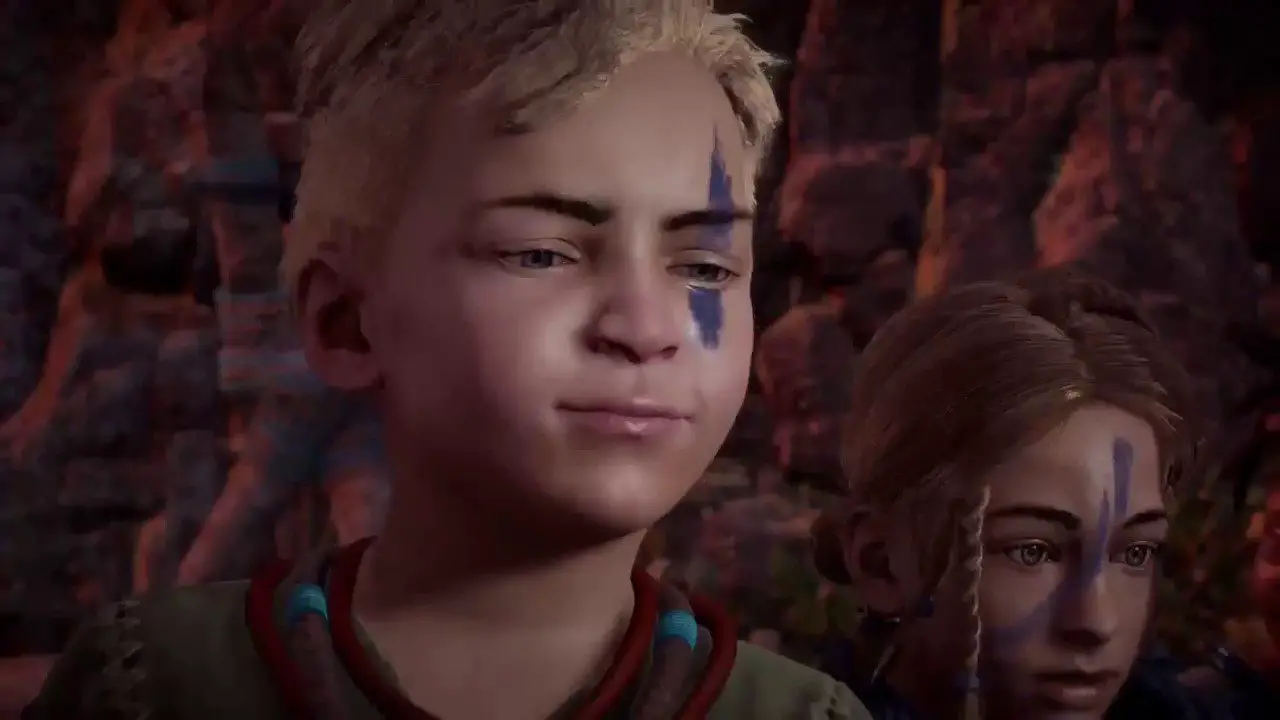
And it’s not just the Nora. The story of this world is beautifully fleshed out as you travel across the landscape of post-post-post apocalypse Colorado. You meet the Carja, an imperialistic desert kingdom recovering from the recent disposal of a tyrannical king. The Banuk dwell high in the snowy mountains, their leaders wary of outsiders and their young weary of their harsh traditions. No group falls into the trap of many other games in how they portray their NPCs.
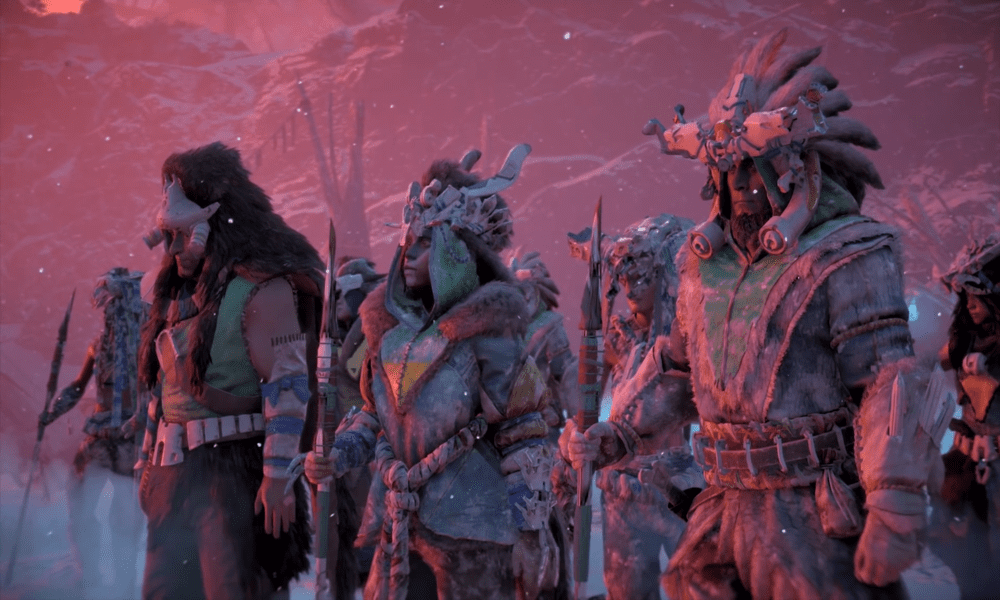
The people act like people. Some Carja guards are immediately and unquestioningly loyal to their new king; others question his will. Some Nora follow traditions without fail, others find clever loopholes. Some metalworking Oseram are steeped in misogyny; others are all but blind to the nature of gender identity.
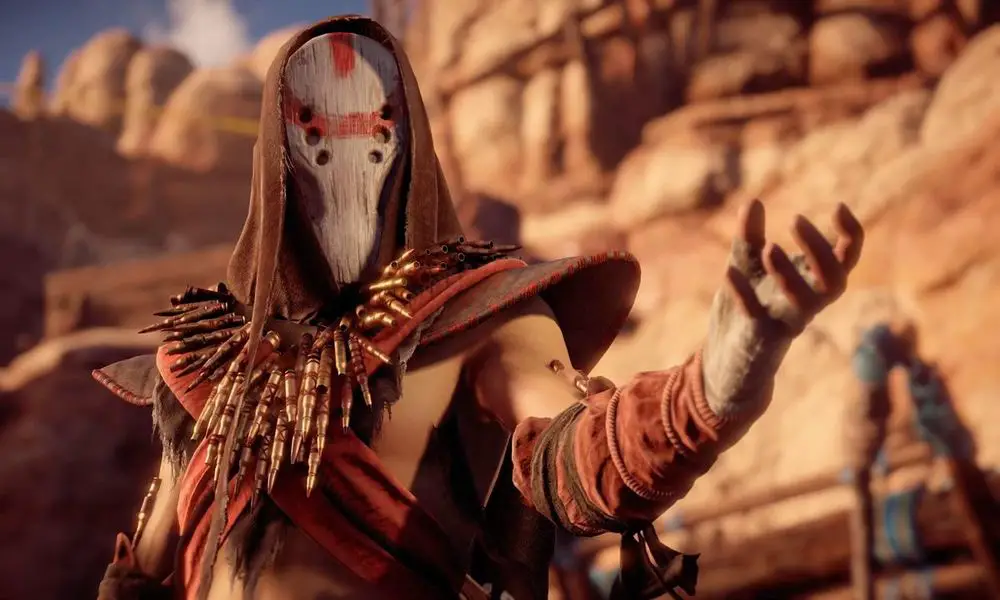
The organic personality of these groups is reflected in how they interact with Aloy. When Aloy first sets out as a Nora- appointed Seeker to…well, seek answers, she’s largely an unknown, and it shows. To others, she’s often seen as an annoyance, one that turns out to be extremely talented, helpful, and quick-witted. By the time you’re halfway through the game, your fearsome reputation as a machine-downing/taming super-hunter has spread. By the time you’re at the end, Aloy has managed (in typical protagonist fashion) to bring a bunch of seemingly unrelated people together and gained the respect and acknowledgement of hundreds. And it’s here that it’s worth examining how Aloy has changed.
That delightful wit and sarcasm hides a lifetime of hurt and bitterness. Aloy’s forceful isolation and decade long-training imbues a sort of cautionary cockiness into her. She’s doubtful of other’s abilities, automatically assuming that, having had to complete matters on her lonesome for so long, that she can only rely on herself to get the job done.
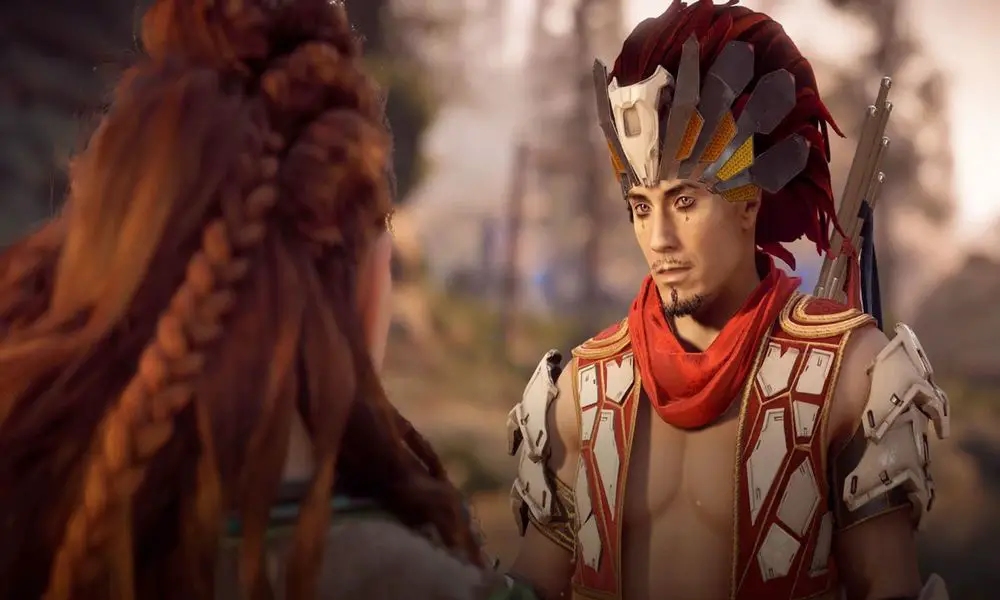
She never loses her edge, never doubts her own competence. Even when she discovers her identity as the clone of a long dead genius and savior, she, despite being shaken, remains determined and self-aware. Her status as a person has been questioned so often for so long, but her rock solid understanding that she is worthy and valid simply because she is first and foremost a human being never falters. In turn, she comes to use that same perspective as more than shield; it becomes a sword. Or spear, in line with the game.
The Hero the Apocalypse Needs
Yet as Aloy travels, she comes to see the trees beyond the forest. Despite having no obligation to help, no obligation to try, no obligation to care…she does. She can be gruff, and at times mercenary, but in this harsh world, she has a rare ability to look beyond regions and tattoos and markings and see people. She extends the same attitude she wishes others had extended to her, and to her surprise, many reciprocate in turn.
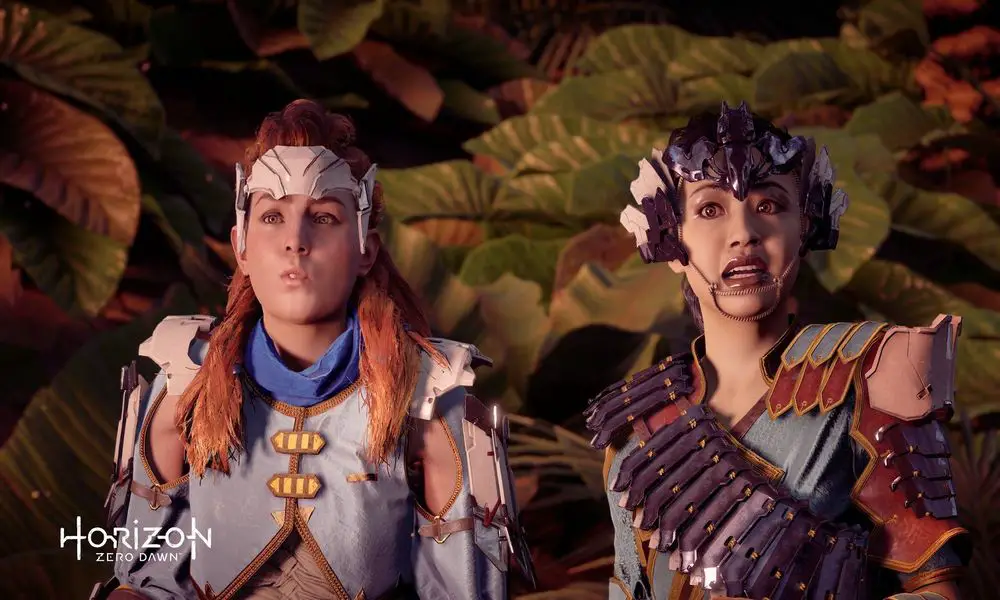
And time and time again, she is surprised. She is surprised by Eren’s eagerness to help, surprised by Talanah’s easy comradery and commiserating, surprised by Nil’s (albeit bloodthirsty and sociopathic) willingness to let her set the pace of battle against raiders and slavers. She is surprised by Teb, a former hunter turned weaver, who makes a set of armor with the hope that the little girl who saved his life and he in turn was forbidden to thank may one day come to prove her worth.
Here’s something important, though: the game doesn’t try to claim that everything is fixed.
Aloy’s emotional scars don’t just fade away. Like the ancient, chilling familiar structures that dot the vine and snow covered landscapes, Aloy’s discontent does not simply go quietly into the night. Horizon doesn’t suddenly make the Nora or the Carja or the Banuk some misunderstood beatific society. Aloy is given a perspective of the inner workings of each group, and while she is able to see their beauty, she doesn’t shy from pointing out their flaws.
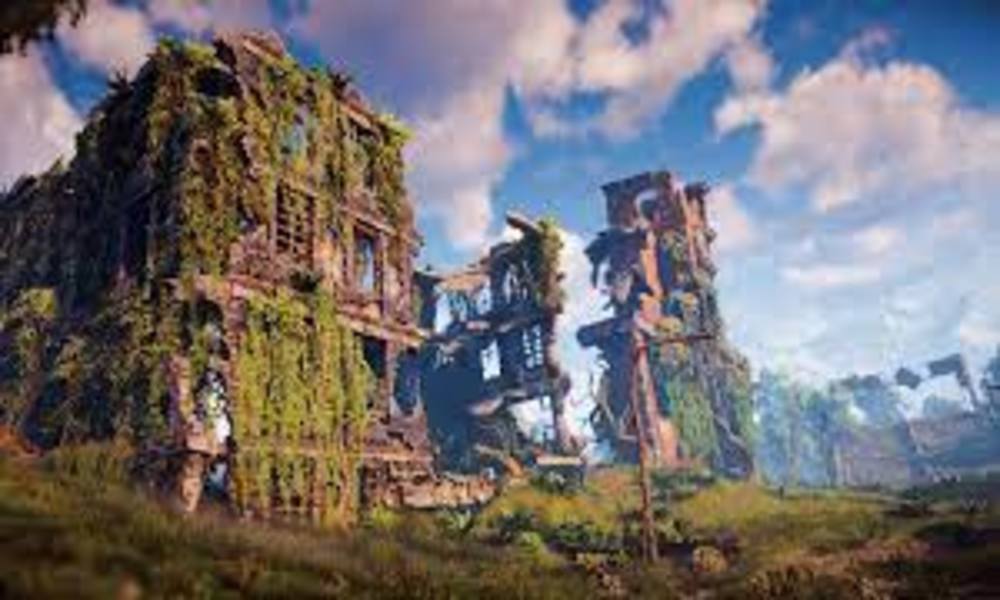
When the Nora try to fold Aloy in late game and claim her as their own, heralding her as their savior, their messiah, she is understandably ticked off. She doesn’t curse them or storm away, but she is absolutely willing to lambast them by pointing out their hypocrisy and often blind cruelty, not only to her, but to others, be they outcasts, other tribes or even other Nora themselves.
A lot of media has a moment where the hero(ine) either gladly accepts the long-awaited invitation into the fold, or else divorces themselves from the group completely, leaving the hapless organization to their fate. Aloy does neither of these. She very much is, in her own words, “Aloy, Despite the Nora.” These people, heck none of the people she meets, are hers to protect.
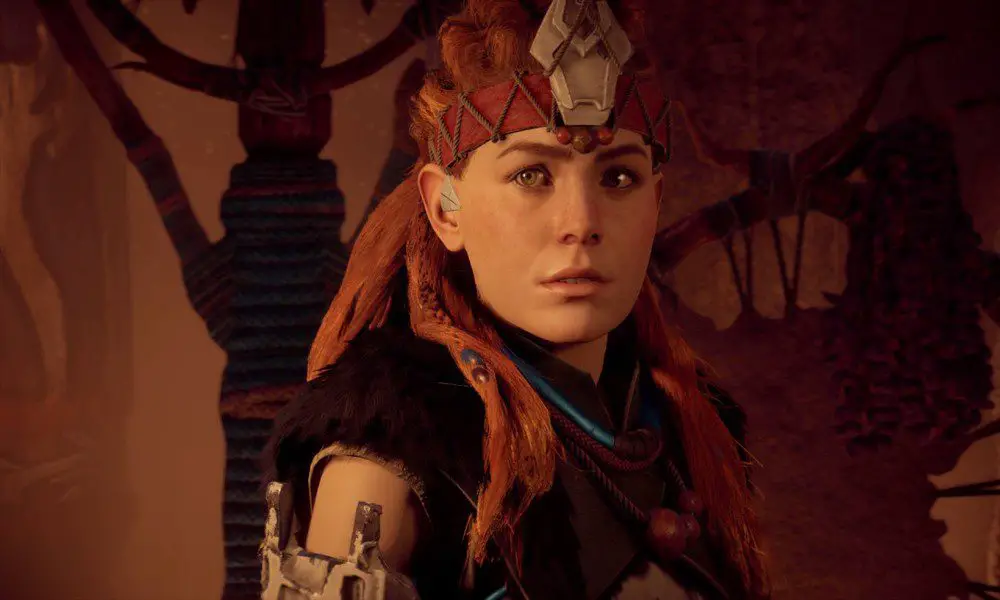
And yet…they are people, and so they become worthy of her protection.
And Aloy does so not out of spite, or to rub her superior skills and knowledge in her doubters faces or for money or reward. She does it because she’s capable and she can and she, even while searching for answers, can’t help but extend a hand to those who so long ago would have refused to give their own.
It’s an inspiring ideal―to have someone hurt time and time again not forgetting or forgiving but healing nonetheless, in her own time, in her own way, and becoming a better person despite being a pretty damn good one to begin with. To have someone help others not out of obligation but because despite everything, it’s the right thing to do.
And come February 18, 2022, we get to see if trend continues.
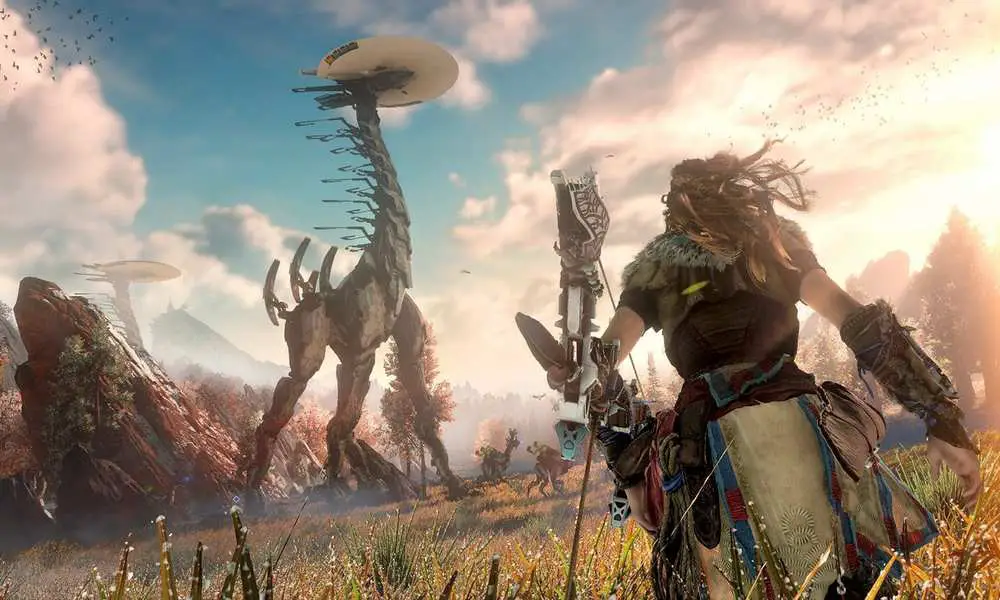
Images courtesy of Guerilla Games and Sony Interactive Entertainment.
Have strong thoughts about this piece you need to share? Or maybe there’s something else on your mind you’re wanting to talk about with fellow Fandomentals? Head on over to our Community server to join in the conversation!

